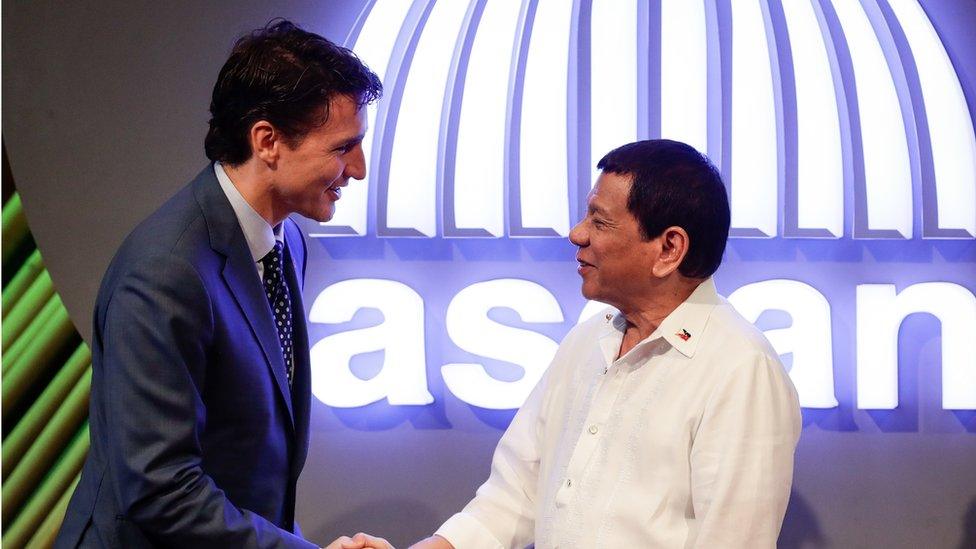Rodrigo Duterte: Philippines not a 'dump site' for Canadian waste
- Published
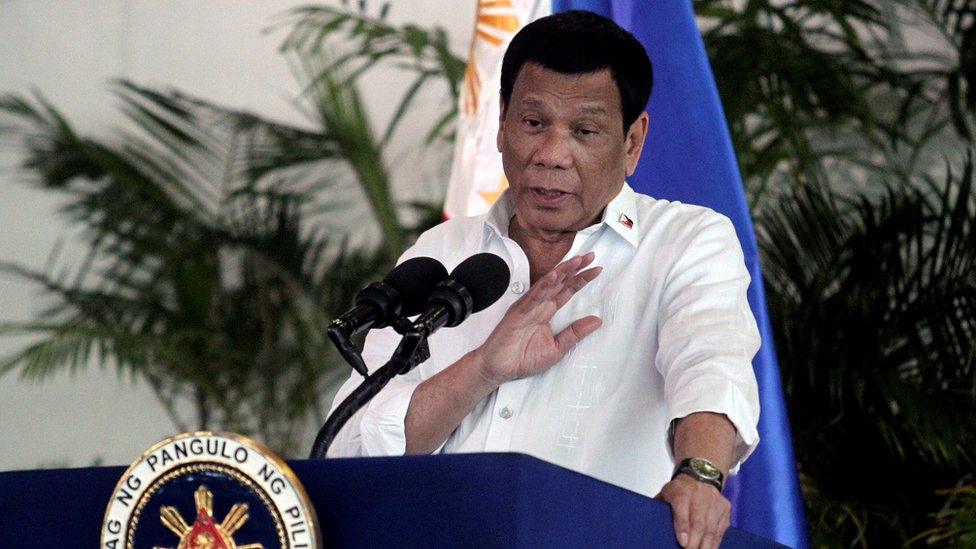
President Rodrigo Duterte is known for using strong language
Philippine President Rodrigo Duterte has chastised Canada for failing to take action on waste it exported to the South East Asian nation years ago.
The country has filed several diplomatic protests with Canada over tonnes of refuse shipped to the Philippines between 2013 and 2014.
This week President Duterte threatened to ship the waste back to Canada.
Canada says it is "strongly committed" to resolving the issue and will work with the Philippines to do so.
President Duterte criticised Canada over the long-running diplomatic issue, saying it is turning his nation into a "dump site".
"For Canada's garbage, I want a boat prepared," he said on Monday, adding: "They better pull that thing out or I will set sail to Canada and dump their garbage there.
"Let's fight Canada. I will declare war against them."
President Duterte is known for his outspoken style and regularly uses strong language and makes controversial remarks.
His comments on Monday relate to containers shipped to the capital, Manila, by a private Canadian-based company and its Philippines-based consignees.
Manila says the containers, which arrived at Manila International Container Port, were falsely labelled as containing plastics meant for recycling and were in fact filled with tonnes of household waste.
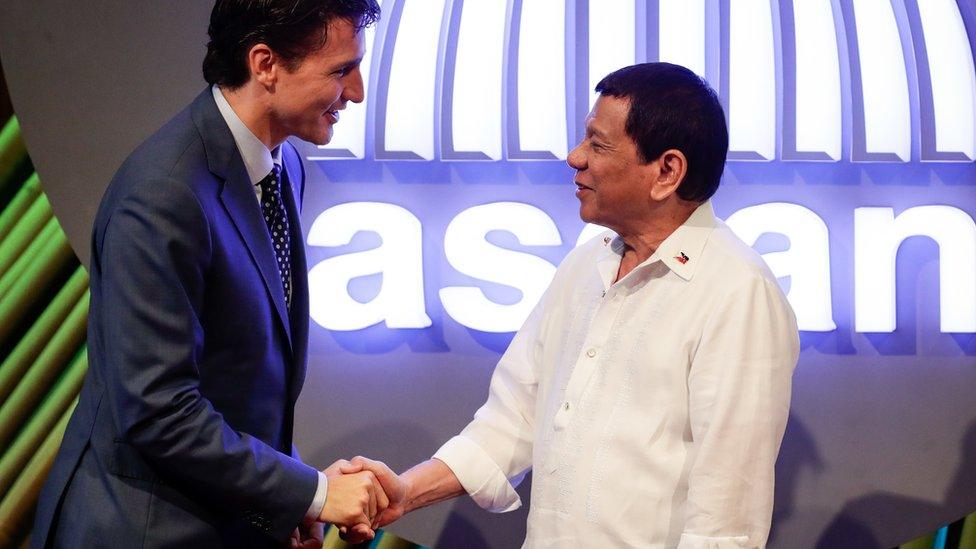
Canada's Prime Minister Justin Trudeau shakes hands with Mr Duterte in Manila in 2017
An inspection found that some contained plastic bottles and bags, household garbage, and used adult nappies (diapers).
Another inspection of the remaining containers in 2015 found they contained non-hazardous municipal waste, including household and street garbage.
Philippines officials first raised the issue with Canada in 2014.
The government says the containers have caused port congestion, external and are a hazard to public health.
Some remain in storage at the Manila port while others have been disposed of in a large landfill site.
In 2016, a court in the Philippines ordered the waste to be shipped back to Canada at the expense of the importer.
That same year, Canada amended its own regulations around hazardous waste shipments to prevent such events from happening again.
Earlier this year, a coalition of environmental groups in both countries wrote to Canadian Prime Minister Justin Trudeau asking to have the waste returned to its sender.
A joint technical working group with officials from both countries is now examining "the full spectrum of issues related to the removal of the waste with a view to a timely resolution", Environment Canada said in a statement to the BBC on Tuesday.
The challenge of global waste - and where it ends up - has been of growing concern worldwide.
China introduced a ban on "foreign garbage" as part of a move to upgrade its industries just over a year ago.
The amount of plastic taken by China dropped by 94% between 2016-17 and 2017-18, while Malaysia, Turkey, Poland and Indonesia took up the slack.
The UN says the global waste market sector from collection to recycling is estimated to be $410bn, external (£316bn), "excluding a very large informal sector".
- Published18 March 2019
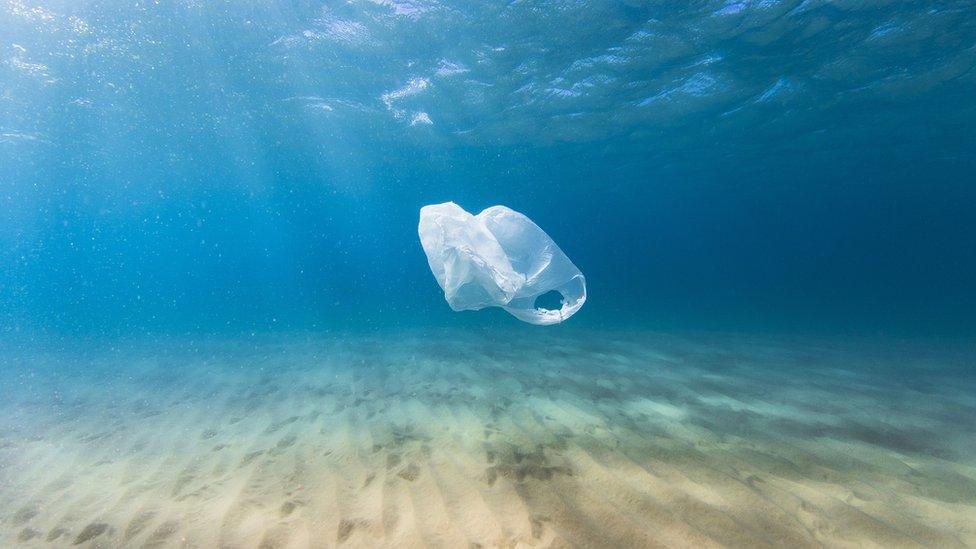
- Published23 April 2019
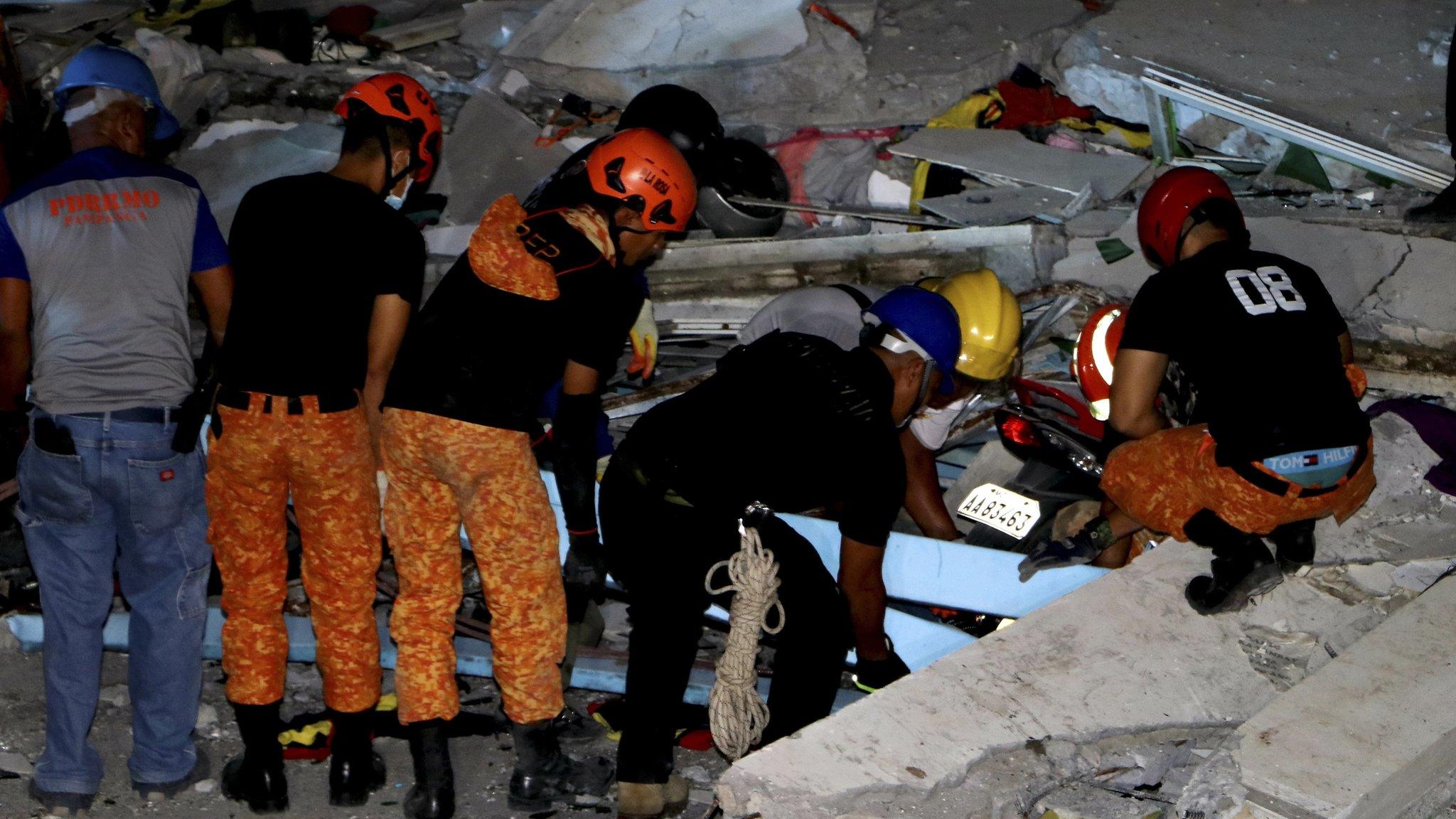
- Published9 February 2018
